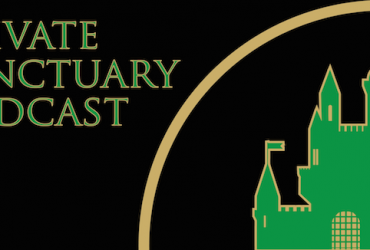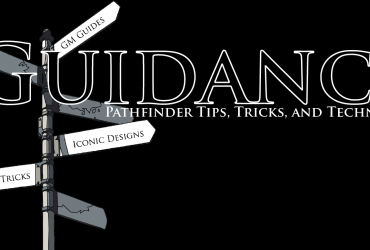It happens to every GM eventually. Whether prepping becomes too much work. Or managing players becomes too challenging. Or it becomes to hard to find the thread of the story. Burnout. That point where GMing starts to feel more like work than does fun. When the job of GMing for your group is actually a job. And you start dreading an upcoming session rather than being excited for it.
In some situations, this might be a symptom of campaign fatigue. In others, it’s the cause of it. But when you’ve been sitting behind the screen too long everything might start to become monotonous and your epic narrative might become stagnant. My group has run into this sort of thing, mostly in the middle of long campaigns. There was a pretty significant amount of fatigue in Rise of the Runelords. And again in our homebrew Numeria campaign. In the latter case we chose to end the game after the current story arc was done while we decided to slog through the remainder of the former.
These approaches worked, but they weren’t quite the satisfying end to the campaigns we were hoping for. As my group reflects upon previous campaigns in preparation for a new narrative, we’re considering implementing some sort of GM rotation.
Rotating GMs isn’t a new concept by any means. Heck, GM rotation is a staple of most PFS Lodges. And sure, at the start of a new campaign a new person might take the helm. But I get the sense that GM rotation within long running campaigns is fairly far from the norm. So I’m here today to try and make a case for why swapping out your GM within a campaign might be a worth while experiment.
1) As an Antidote for Fatigue
GM fatigue happens. There’s a very real burden to running a game, especially if it’s a long campaign. If it’s a homebrew you’re coming up with hours and hours of original content for your players to consume. Even if you’re running a published adventure, you’ll need to read and internalize the adventure content in order to run a coherent game. It’s no exaggeration to say that most GMs to as much work between games as they do during them.
Rotating GMs between story arcs – say every four to six sessions – can help alleviate this burden. Each GM is responsible for their section of the story, their chapter, and can focus on that without having to worry about where the party might be ten or twenty sessions from now.
2) Walk a Mile in Their Shoes
I’ve a theory about GMs. It’s that every GM runs their game the way that they would want it run for them. By that I mean that as a player, you would want a GM to run your game the way you would run it. Switching out GMs can help you get a better understanding of your groups’s play style and what each of your players are looking for in their gaming experience. And maybe being behind the screen might even give a former player a better appreciation for what you do.
3) Different Directors, Different Stories
Some productions are great with a single creative lead behind the project – see Peter Jackson’s Lord of the Rings trilogy. But sometimes, having the same person behind the helm for too long can have less that satisfying consequences – see Peter Jackson’s Hobbit trilogy…
While every game is ideally a collaborative effort in story telling, the GM is the ultimate director of the narrative. Switching out this responsibility (and honor) can help evolve your shared story through your games in new and exciting ways.
I’m pretty excited to embark on this journey with my group. I’ll report in once we have a few rotations in the books. Until then, how do you fight GM fatigue? Does your group swap GMs or stick with one main one? Share your experiences in the comments section below or on our forums!







My group plays mulyiple games with the same group. That way a gm can play as a player. Than chance to see your own charecter grow and evolve can help revive any gm. Even a handfull of sessions can reveive me for months of gm’ing personaly.
I don’t know how long-term home-campaign GMs do it. They have my greatest respect. I’m almost completely burnt out as a VA, and I still get to play once in a while.
Organizational fatigue is probably a whole different monster from GM fatigue, but the effects of the two are definitely cumulative, if not synergistic.
Good luck on your recovery, Anthony!
My group rotates GMs about every three months. We usually play once a week, if the wives permit. I run Runelords, another does Giantslayer and the third rotating GM has a homebrew. Several of our younger players are just players as they are in school and we try to avoid distracting them with GM responsibilities while working at being educated. We usually rotate every time we finish a book in an AP. It’s usually when the GM is most tired and quite often a great spot to take a break and relax as a player. So far, it is working very well.
My group once had what we called a campfire campaign. Every session was a small, self contained adventure. The next time we met up, the next person around the table took over as GM and we’d do his adventure. It was good, easy fun and always mixed things up and kept it fresh.
Currently we’re running the Skull & Shackles AP where I’m GM and I have a character that’s a crew member on their ship (I have 2 regular players and another that comes and goes). Every once in a while we’ll do a homebrew side adventure where one of the other players takes over, and I get to take a break and really have fun with my own character. It’s working well for all of us so far.